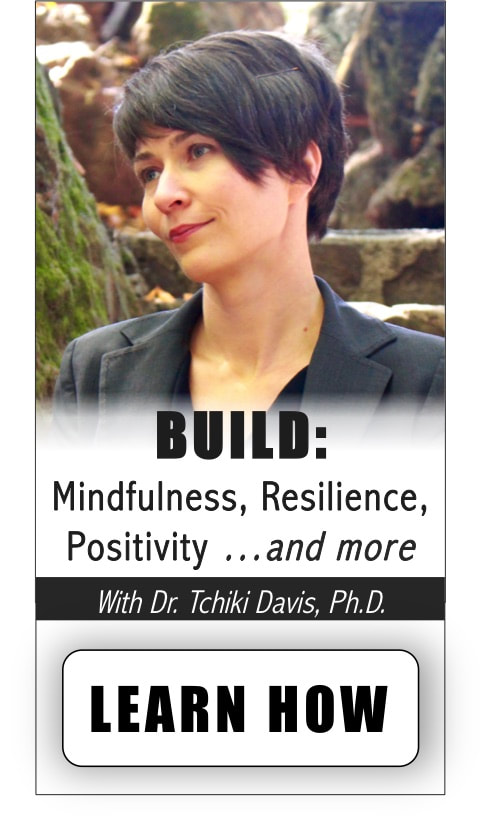|
Resilience is that amazing skill that helps you recover quickly from difficulties. If you are resilient, then when life knocks you down, you bounce back and you keep going. Sometimes life's challenges can even make you stronger. So how do you become a more resilient person?
1 Comment
Its amazing the impact that positivity can have on your life. Thinking positive can make every moment worth experiencing and every goal worth shooting for. By thinking positive, you just can't help but be optimistic, even when everyone around you is miserable. As a result, you are happier, less depressed, and more satisfied with your life. The benefits of positive thinking are vast. So how do you train your brain to think positive?
People often ask me, "What can I do to boost my happiness?"
I tell them that there are tons of things you can do, but then my aging brain can only recall one or two examples in that moment. So, here is the complete guide for how to be happier, according to science. If you use these 23 practices consistently, you are very likely to increase your personal happiness. Why is it so hard to find our life purpose?
There are many reasons why you may not know your life purpose. Sometimes it's because the world's problems seem too big. Or we seem too small. Or maybe we are just exhausted from life and don't know where we'll find the energy to fight for what really matters to us. But if you want to change all that and find your life purpose, here are some steps to get started. (To learn more about Purpose, check out our Purpose-Driven Business Program) Like games? Want to get happier? These games were increase your happiness. Do you remember playing games like the Oregon Trail or Carmen Sandiego? These games helped you develop skills like planning and world geography. But learning these skills was fun because it was just part of the game.
Now imagine for a moment that you could learn happiness skills – skills like positivity, gratitude, and self-esteem - just by playing games. Well, it turns out you can, because happiness has officially been gamified. Now there are several games that help you build the skills that contribute to happiness. So if you’re like me and want to gamify your "happiness journey", here's how Many happiness seekers have read dozens of articles on happiness, yet they don’t feel much closer to creating the happiness they desire in their lives. Reading about the practices that increase happiness is a great first step. But one thing that you may not have heard is this:
You can increase your happiness by turning your "happiness weaknesses" into "happiness strengths". It was my last year in college, and I needed to take physics to graduate. The only problem? I had skipped physics in high school, so I had no foundational physics skills. After only one week in the class, I was completely lost. I read every word in the textbook, went to office hours, and attended a study group, but I just barely passed the class.
My experience probably doesn’t surprise you. You know that to learn something new, you have to start with the basics—and this is also true for learning happiness. We can make it easier for ourselves to build happiness when we choose the right habits to work on first. Here’s how to get started. Is she mad at you? Is he in love with you? Here's some ways to decode emotions in text messages to find out. “How do you decode emotions in text messages?”
It’s easy when people say they are angry or sad or excited, or if they tack an emoji to the end of a text. But when they don’t? Given that even face-to-face communication can be confusing, it should not surprise us that truncated, dashed-off text messages can result in disastrous misunderstandings. In the age of technology, we not only need to decode in-person interactions, we also need to decode textual transmissions. How do we know what a person is feeling when we can't see their faces or body language? Here are six tips to help you better decode emotions in text messages, or at least prevent yourself from jumping to conclusions based on scant evidence. Work-life balance is one of the things I struggle with most when it comes to building my personal happiness. Do you struggle with work-life balance, too?
As a happiness writer and program development consultant, I really do try to practice what I preach. But if I'm being honest, I have a tendency to be a workaholic. I know that I am not the only one that struggles with this because work-life balance is increasingly tough in the age of technology. We are now constantly attached to our work through cellphones and email. And since the great recession, workplaces have increasingly emphasized productivity and speeding up. Let's face it—we live in a burnout culture. Today, I want to talk about four risk factors for burnout that you may not be familiar with and how to overcome them. Google provides a variety of helpful tools to help you start, grow, and market your business. One of these is Google Trends. But by using Google Trends, you can get a better idea of what’s going on in the well-being industry – a key step in building an effective marketing strategy. Read More >>
|
Welcome to The Berkeley Well-Being Institute Blog!
Categories
All
|
Terms, Privacy & Affiliate Disclosure | Contact | FAQs
* The Berkeley Well-Being Institute. LLC is not affiliated with UC Berkeley.
Copyright © 2024, The Berkeley Well-Being Institute, LLC
* The Berkeley Well-Being Institute. LLC is not affiliated with UC Berkeley.
Copyright © 2024, The Berkeley Well-Being Institute, LLC












 RSS Feed
RSS Feed